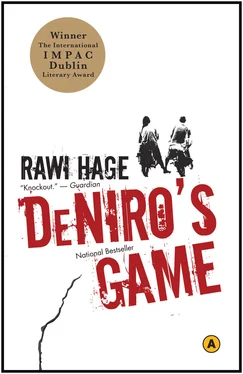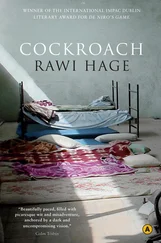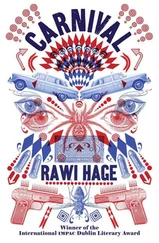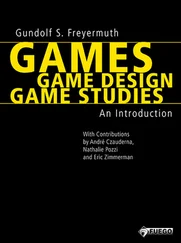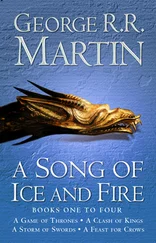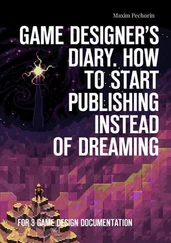I could tell, from the stretch of the headlights on cobblestones, from the slow passing twilight on the doors of houses, that the car was slowing down behind me. I kept on walking. The car drove up beside me. Three kids were in it, and they all stared at me. The driver’s hand was extended from the window like the hands of our taxi drivers from car windows back home. The two passengers shifted their heads to get a better look at me.
I heard one of them saying, Une merde de beur ici chez nous .
Hey, the driver called in French, we do not want filth like you here.
I looked him in the eye, said nothing, and kept on walking.
The kids cursed at me and drove away fast. At the top of the street, the car made a U-turn. Its lights beamed in my face. The kids opened their doors, got out of the vehicle, and slowly walked toward me. Their long, evil shadows touched the tip of my shoes; they swung sticks and pipes in their arms.
I turned and ran in the opposite direction, away from the car lights that were blinding me. I heard rushing steps on the ground behind me, and promises to bash my head and stomp my body with heels.
When I turned the corner, I stopped in the middle of the narrow street, between two houses. I could hear dogs barking on the horizon. I waited for my pursuers. They rounded the corner and stopped suddenly when they saw me. I kept my gun hanging behind my back, and when they approached me, tapping their sticks on their palms, flashing their sarcastic smiles, telling one another jokes, and mocking my masochistic tendencies, I pulled it out slowly. I cursed my pursuers in my own language, and waved my hand, daring them to accept that my bullets would kiss their high boots, shred their leather jackets, enlighten their shaved heads, rewrite their tattoos, colonize their souls, twist their skin like water faucets, block holes like Tuma’s fingers, and make them sing a church-choir tune.
The one farthest from me ran off, and I was left with two of them walking backwards in fear, their pipes and their sticks bent toward the ground like thirsty flowers.
I smiled and waved my gun in their pale faces. I cursed their mothers and their great-grandfathers, and ordered them to drop their pipes and their sticks. I made them kneel on the ground, and when they did that, I asked them to take off their shoes and their pants.
Les pantalons aussi, sharmuta , I shouted, and dogs barked behind doors. A few lights appeared in kitchens and above doorsteps, and curious faces filled small, square windows. Women in see-through nightgowns parted theatrical curtains and peeked out their heads with a playwright’s nervousness.
I kicked both the kids, and then I walked away fast with their shoes in my hand. When I reached the street where I had been walking, I threw away the shoes, and I ran through foreign alleys and avenues. I ran until dawn, until finally I settled on a bench on the promenade, and listened to the sea, and watched the slowly changing colours of the sky.
BY MID-MORNING, the sun shone strong, which made the city shadows darker. I saw Manichaean split walls, sparkling tree leaves, and shaded benches. The cafés opened, and people strolled on the promenade. I walked beside them, passed them, and then slowed to walk again with them. I looked for a place to exchange money, and found one. I did my exchange and walked to a café. There, I sat and I ate and I drank and I looked at the newspaper. The old owner behind the bar did not seem surprised to see me. I walked on again and decided to look for a place to stay.
I entered the first hostel I saw, and the woman behind the desk, a large woman who looked indifferent, or bored, asked me for identification. I said that I would get it from the car. I stepped outside and never went back.
Instead, I wandered the whole day, aimless. I looked at people and shifted from one café to another. Finally, I searched my pocket for a light and pulled out the paper that Nabila had given me. On it, there was a name: Claude Mani. There was also a number, and on the bottom of the paper: Paris.
Suddenly it hit me — how far I was from Nabila, that I had left Beirut. At the same time, this realization gave me a sense of purpose. I decided to call the number, like I had promised. I found a telephone booth and dialed. The phone rang, but no one answered. Still I stood in the booth, looking with an empty gaze through the glass. I felt as if I could live inside of the booth, feeling its borders, claiming it for myself. I pretended that I was talking on the phone, but all I wanted was to be in the booth. I wanted to stand there and watch every passerby, I wanted to justify my existence, and legitimize my foreign feet, and watch the people who passed and never bothered to look or wave. I did not recognize a soul. So I waited and glued the receiver to my ear and listened to the long, monotonous tone. I listened until the recording of a lady’s voice came on and gave me two choices: dial again or hang up.
I chose the former, and this time, a soft woman’s voice answered.
I am looking for Monsieur Mani, I said in French.
The woman paused, then said, Monsieur Mani is dead.
We were both silent.
Who is calling? she continued after a moment.
I am a friend of his son, George, I said carefully.
There was another pause, and then the woman asked, Where are you calling from?
Marseilles.
I am Monsieur Mani’s wife, she said.
I have a message for Monsieur Mani, I said. I didn’t know what else to say.
Are you from Lebanon?
Yes.
There was a final pause. Then: Can you come to Paris? My daughter and I would like to meet you.
I TOOK THE BUS to Paris. It passed through fields of vines that were arranged in rows. The vines curled around batons dangling white, and sometimes red, grapes through green leaves. We passed rustic villages with brick roofs, and churches perched on modest dunes, and clean, open spaces that seemed to have no purpose but to provide scenery for the occasional balancing villager pedalling a bicycle with a basket filled with vegetables. The bus stopped at a few small villages, and passengers entered and left quietly, aloof, like tourists on church visits. I sat alone, and leaned my head against the window, and slept. When I arrived in Paris, I got off the bus and looked for the woman I had talked to on the phone.
She wore a long navy dress, as she had promised. I approached her, and she smiled.
Do you have any luggage? she asked.
No.
The car is on the other side. She walked beside me, smiling. I am Genevieve, she said. Claude’s wife.
I nodded.
When did you arrive in France?
A few days ago.
You came straight from Beirut?
Yes.
Yes, I knew the city a long time ago, before the war. I knew Beirut; it was a beautiful place.
In the car, I examined Genevieve. She was in her late forties, maybe her early fifties; she was well dressed and well made up, which made it hard to tell her age exactly.
She looked in the mirror constantly, and then before she took a turn she looked back at the rear window, then quickly glanced at me.
So you know George?
Yes, we were good friends.
He asked you to get in contact with Claude?
No, it is his aunt Nabila who gave me the number.
And George’s mother?
She is dead.
Genevieve nodded slightly.
When we arrived at our destination, she parked the car and asked me to follow her. She opened the gate of a large, old, white building, and we walked through the entrance to the elevator. It was small and made of red wood and massive steel. Through the metal grid I could see a large spiral stairwell behind the ascending cage, and when the box arrived on Genevieve’s floor (after being pulled up by demons who lived on the roof, I supposed), it gave an echoing screech like the kind one only expects to hear in large hallways suitable for chamber music, or in aristocratic ballrooms. Genevieve placed a key in the lock of her door, but before she got the chance to twist it, the door opened from the inside. A maid greeted the madame.
Читать дальше
